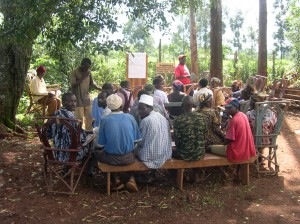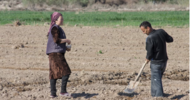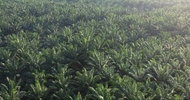IPS | 19 April 2010
By Isolda Agazzi
NAIROBI - Parts of the Tana Delta on Kenya’s northern coastline are being leased to foreigners to grow food and bio-fuels for export. Civil society organisations are worried about such deals as they are done without public consultation while safeguarding investors from requirements that could benefit local communities, such as technology transfer.
The Qatari government has claimed 40,000 ha in the fertile Tana Delta to grow food for export, in exchange for the construction of a port in the town of Lamu on Kenya’s northern coastline, according to Paul Matiku, director of Kenya Nature, a local nongovernmental organisation (NGO) that monitors what it regards as land-grabbing.
“The problem is that there is no central management system for the delta and no recognition of people’s rights over it. How is the planning happening? We don’t know,” he stated.
Matiku was participating in a roundtable discussion organised by Media 21 Global Journalism Network in Nairobi prior to the first conference of African ministers responsible for meteorology. The workshop ended on Apr 16. Media 21 is a Geneva-based initiative launched to enhance media coverage on current complex global issues.
The recent large-scale acquisition of land in Kenya and in Africa in general happens on murky terrain as governments negotiate behind closed doors. Some NGOs are trying to find and dispense information about the deals but only a small part of agreements becomes known.
Matiku explained that several companies are active in the Tana Delta: Mat International has claimed 30,000 ha for the initial growing of sugar cane; an additional 90,000 ha form part of the deal. A company called Tiomin plans to mine the sand dunes. Other private companies want to grow maize in an attempt to cash in on future food crises such as the one in 2008/09.
“In these deals, environmental costs are usually overlooked: the loss of water, species diversity and ecosystems that are essential for food security,” Jonathan Davies of the International Union for the Conservation of Nature (IUCN) in Nairobi pointed out. IUCN is an international NGO that promotes sustainable development.
“Who is responsible for these environmental losses? It is likely that national governments and local communities, rather than investors, will bear the costs,” Davies added.
Matiku maintained that African governments make the erroneous assumption that there is plenty of empty land in Africa and that money can be made by exporting crops. “But short-term gains will lead to Africa losing its natural capital,” he warned.
For John Mutunga, CEO of the Kenya National Federation of Agricultural Producers, these land deals do not benefit populations where many people depend on subsistence farming. The destruction of biodiversity due to monoculture cultivation also holds serious implications for the environment.
Additionally, water is scarce in Africa and most of the deals require irrigation.
But he sounded a hopeful note when he added that “there may be some positive attributes in that we may receive technology transfers”.
But Davies was less optimistic: “In theory foreign investment can bring new technology, infrastructure and better access to inputs. But, in practice, I haven’t seen it.”
Would it be possible to oblige foreign companies to sell a certain amount of their production on the local market? “It would be possible if we had a conducive investment policy,” answered Mutunga. “But we don’t.”
But the idea of foreign companies selling produce on the local market will run into a variety of difficulties, Mark Halle, director of the International Institute for Sustainable Development (IISD) in Geneva, told IPS. ISSD is an NGO that has worked extensively on the issue of foreign investment. Halle shared Davies’s scepticism.
“First of all, the WTO (World Trade Organisation) prohibits quantitative export restrictions. The obligation to sell part of the food investors produce to the local market would arguably put quantitative limits on exports,” he explained.
“That said, of much more relevance than WTO rules are the obligations imposed on states under international investment treaties and the investment contracts between the investor and the government,” Halle added.
“These have the potential of severely restricting the ability of states to adopt rules that would ensure that agricultural investments are made in a sustainable manner.”
He explained that a number of investment treaties contain a prohibition on “performance requirements”. This prohibits treaty parties from imposing or enforcing requirements that relate to the transfer of technology or the quantity of exports and sales, among others.
But even those investment treaties that do not include a prohibition on performance requirements could clash with government attempts to adopt appropriate measures in the area of agricultural investments – especially when such measures are perceived to conflict with the investors’ “legitimate expectations”.
“Unlike the WTO rules, international investment treaties allow investors directly to challenge host states’ actions and measures,” Halle continued. “Experience shows investors are not shying away from challenging a whole range of public policy measures under their international investment treaties.”
For Halle, there is no reason to believe that this would be any different in an area involving complex issues of land, food security and water rights.
“It is therefore essential that any government contemplating entering into a major agricultural deal do a careful assessment of the legal implications at the national and international levels and draft the contract with the investor with utmost care and with the participation of all affected communities.”













